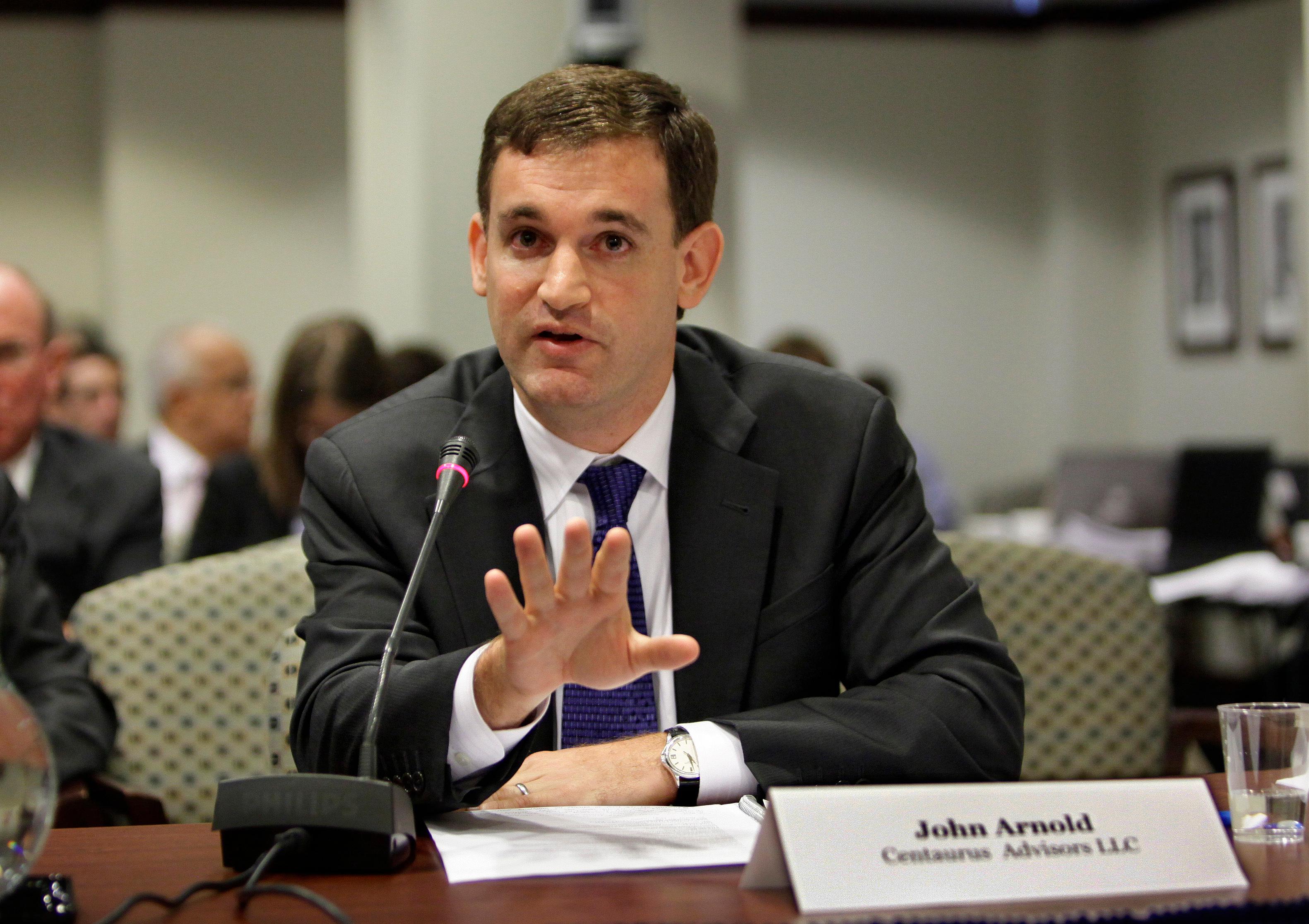

A growing movement to curb partisan gerrymandering will be put to the test Election Day by several state ballot measures that are intended to overhaul the way congressional and state legislative districts are drawn.
While they differ in how to do that, the proposals in Colorado, Michigan, Missouri and Utah all have at least one thing in common: They're receiving funding from a little-known organization bankrolled by a Texas billionaire couple.
The Action Now Initiative financed by John and Laura Arnold has poured $7.7 million into the redistricting campaigns, accounting for one of every four dollars raised by groups backing the ballot measures, according to an analysis by The Associated Press. That's helped supporters significantly outspend their opponents.
"Our interest in these efforts is about giving citizens, not politicians, a greater voice in the drawing of their voting district lines," said Sam Mar, CEO of the Action Now Initiative.
The Arnolds' organization tops a list of the rich and famous who have rallied to the cause, including former New York City Mayor Michael Bloomberg, heirs of Walmart founder Sam Walton, actress Jennifer Lawrence and former California Gov. Arnold Schwarzenegger, a Republican who took a break from filming a movie in Europe to appear at rallies in Michigan and Colorado.
It’s Judgement Day for redistricting & @Schwarzenegger & I think it’s time for us to do a Total Recall on gerrymandering…. But seriously, vote yes on Y&Z in Nov! @FairMapsColo #terminategerrymandering #YESonYandZ #copolitics pic.twitter.com/mz7SVtitDv
The only comparable opposition has come from the Michigan Freedom Fund. The conservative group with ties to the wealthy DeVos family has put more than $3 million into a home-state opposition effort.
The enhanced attention to the drawing of legislative district lines comes as Democrats and Republicans alike are trying to position themselves to take charge of the task after the 2020 Census.
In many states, redistricting is done by the state legislature subject to the approval of the governor. A political party that holds a trifecta of power — as Republicans do in three times as many states as Democrats — can draw districts to its advantage, a technique known as gerrymandering.
Republicans currently have trifecta control in Michigan, Missouri and Utah. Colorado has a Democratic governor and House but a Republican-led Senate.
The ballot measures are intended to reduce the likelihood of partisan gerrymandering in the future, no matter which party is in power.
Proposals in Michigan and Colorado would create independent commissions to redistrict U.S House and state legislative chambers, similar to those already in place in California and Arizona.
Colorado's two proposals require mapmakers to "maximize the number of politically competitive districts," while the Michigan measure says districts "shall not provide a disproportionate advantage to any political party."
Utah's proposal also would prohibit districts that unduly favor any political party while creating a new redistricting commission, although it leaves the final say on proposed maps with the Legislature and governor.
The Missouri proposal, which keeps an existing bipartisan commission for state legislative redistricting, would go a step further by requiring the use of a statistical formula to achieve "partisan fairness" and "competitiveness" as top criteria over the traditional standard of geographically compact districts.
The Arnolds' Action Now Initiative didn't write the redistricting measures. But once local activists showed some momentum, the Houston-based organization came to their aid. It contributed $5.1 million to the Michigan initiative, about $1 million each to the Missouri and Utah initiatives and about $600,000 to the Colorado initiative, according to campaign finance records.
That money supplemented thousands of small-dollar donations from others, helping the state-based organizations defend against legal challenges, pay for voter research and develop messaging for their campaigns.
"We have a lot of momentum and a lot of people and a lot of volunteers. But the one thing we didn't have was some of those larger dollar donors, because we had never been involved in the political process before," said Katie Fahey, founder and executive director of Voters Not Politicians, which is sponsoring the Michigan initiative.
In Missouri, the Action Now Initiative provided an additional incentive for fundraising by offering to match contributions from others up to a certain amount, said Sean Nicholson, campaign director for the sponsoring group Clean Missouri.
The redistricting measures are part of an "electoral reform" effort by the Action Now Initiative that is intended to promote "responsive and accountable government," said Mar, the CEO. Those priorities also include open primaries and ranked-choice voting, in which voters indicate preferences for multiple candidates to help determine a winner if no one gets a majority.
John Arnold is a former energy hedge fund manager who retired as a billionaire in 2012 at age 38. Laura Arnold is an attorney and former oil company executive. The Arnolds have bankrolled causes across the political spectrum, from conservative-leaning efforts to expand school-choice programs and overhaul public pensions to liberal-leaning initiatives to tax soft drinks and carbon emissions. Most of their personal political contributions have gone to Democrats, though they have supported some Republicans.
The Michigan initiative also received $5.5 million from the Sixteen Thirty Fund, a Washington-based entity that supports liberal causes but does not have to disclose its donors because it's set up as a social welfare nonprofit. That combined with the funding from the Action Now Initiative accounted for two-thirds of the $15.7 million raised by Voters Not Politicians through Oct. 21.
"Any time you have that kind of out-of-state money coming in to put something in our constitution, it should make people very skeptical," said Tony Daunt, executive director of the Michigan Freedom Fund, which also is exempt from disclosing its donors.
Although there has been little opposition in Colorado or Utah, the Michigan Republican Party has criticized the initiative's sponsors as a "front group" for Democrats. Missouri's Republican Party also has asserted that the initiative is crafted to benefit Democrats, but opponents have struggled to raise money.
"Redistricting is not the sort of thing that on its face attracts a lot of interest," said former Republican U.S. Sen Jim Talent, chairman of the Missourians First opposition committee. "You have to explain what the impact of this would be."









